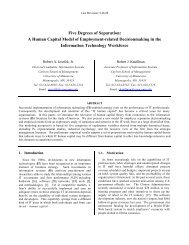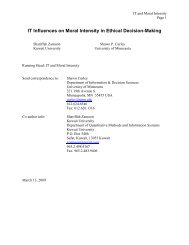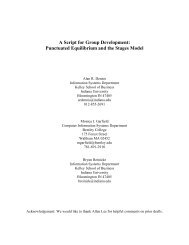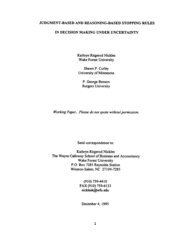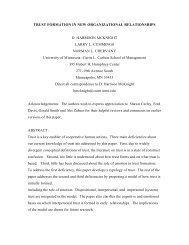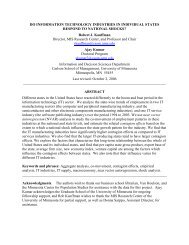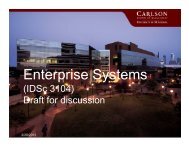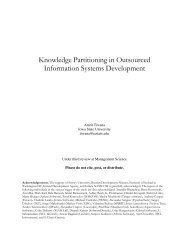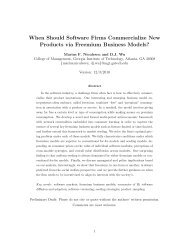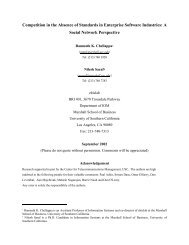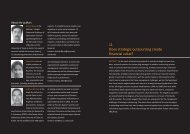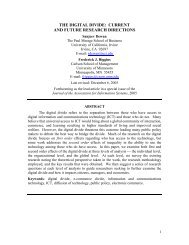Agent-Based Modeling to Inform Online Community Theory and ...
Agent-Based Modeling to Inform Online Community Theory and ...
Agent-Based Modeling to Inform Online Community Theory and ...
You also want an ePaper? Increase the reach of your titles
YUMPU automatically turns print PDFs into web optimized ePapers that Google loves.
tions. (1) How does the style of moderation affect a community’s viability <strong>and</strong> its members’ com-<br />
mitment? (2) To what extent are the effects of moderation contingent upon community characteris-<br />
tics such as <strong>to</strong>pical breadth <strong>and</strong> message volume? (3) How does the style of moderation affect the<br />
trade-offs among the various benefits that members receive from participating in an online com-<br />
munity? Below we describe the conceptual framework of the model <strong>and</strong> its theoretical basis.<br />
2. The Conceptual Framework for the <strong>Agent</strong>-<strong>Based</strong> Model<br />
Figure 1 depicts the conceptual framework underlying the agent-based model of motivation in online<br />
communities. In this model, the benefits that members think they will receive from participating in<br />
the community influence their motivation <strong>to</strong> return <strong>to</strong> the community <strong>and</strong> <strong>to</strong> read <strong>and</strong> post messages.<br />
These individual decisions result in an online community with certain characteristics at a particular<br />
time, such as the numbers <strong>and</strong> quality of messages in it, the number of members in it <strong>and</strong> their activi-<br />
ty, <strong>and</strong> the similarity of among members <strong>and</strong> the frequency of their interactions. Design interventions,<br />
such as ways in which the community moderates discussion, also influence these community charac-<br />
teristics. These emergent features of the community in turn influence the benefits participants think<br />
they will receive in the future.<br />
This model is based on several social psychological theories of motivation <strong>and</strong> voluntary<br />
contribution. We started with the most basic motivation theory, expectancy-value theory (Vroom,<br />
2005), <strong>and</strong> used one of its extensions, the Collective Effort Model (Karau <strong>and</strong> Williams 1993),<br />
which addresses how contribution <strong>to</strong> a group influences both the net value participants receive<br />
from their contributions <strong>and</strong> their expectation of this value. The Collective Effort Model lays the<br />
basis for the theoretical framework by suggesting that people contribute <strong>to</strong> a group <strong>to</strong> the extent<br />
that they believe their efforts will directly or indirectly lead <strong>to</strong> benefits <strong>to</strong> themselves. Yet the Col-<br />
lective Effort Model is silent about the different types of benefits members derive from participat-<br />
ing in a group. Empirical research (Ridings <strong>and</strong> Gefen 2004) suggests three types of benefit people<br />
derive from participating in online communities: (1) informational benefits from accessing <strong>and</strong><br />
sharing information with others; (2) social benefits from identifying with a group <strong>and</strong> interacting<br />
10



